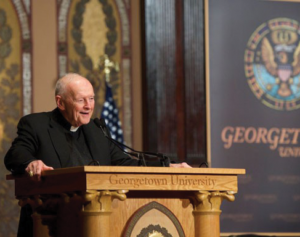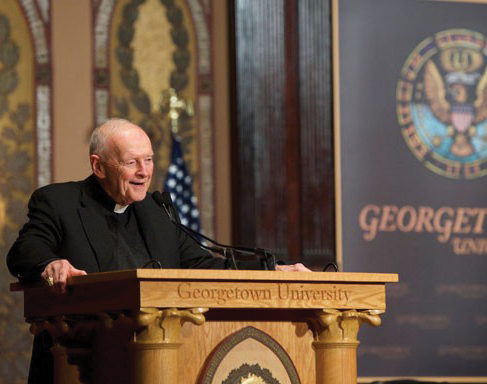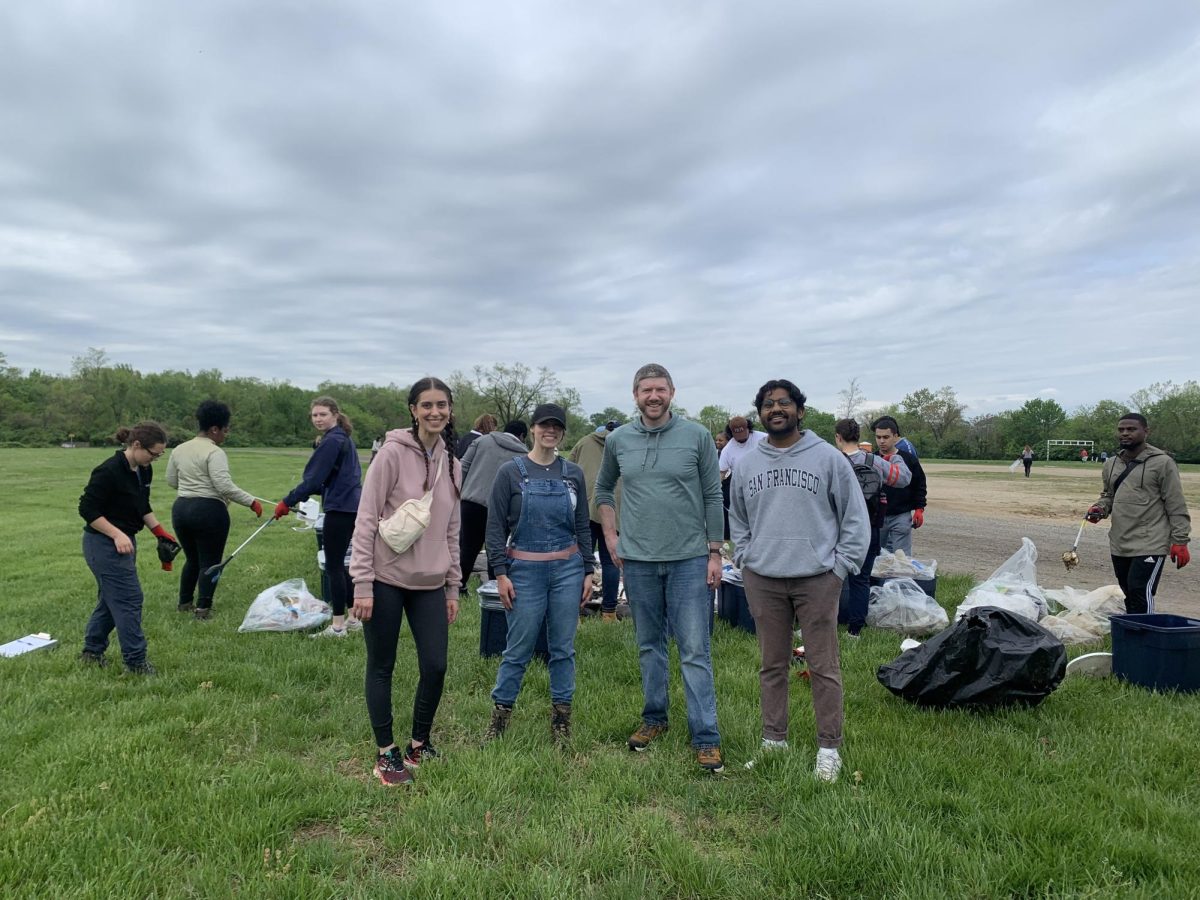Georgetown University stripped former Washington, D.C. Archbishop and Cardinal Theodore McCarrick of his honorary degree Feb. 19 after the Vatican expelled him from the priesthood for sexual abuse Feb. 16.
The decision comes after a working group was tasked in October 2018 with evaluating the role of honorary degrees, including whether the university should revoke the degree awarded to McCarrick. Georgetown has never previously revoked an honorary degree, University President John J. DeGioia announced in an email Tuesday.
The revocation is part of Georgetown’s efforts to protect the vulnerable, DeGioia wrote in a Feb. 19 email sent to members of the Georgetown community.
“As our University community continues to reflect on the aspects of our own response, now and into the future, there is an important step for us to take at this moment,” DeGioia wrote.

Georgetown granted McCarrick an honorary degree in December 2004 for his humanitarian work while he was archbishop of Washington. He maintained close ties with the university, holding Mass and attending speaking events until 2013. McCarrick also served on an advisory group to the Georgetown Initiative on Catholic Social Thought and Public Life when it was founded in 2013.
At least nine other universities have taken similar action since the allegations against McCarrick of sexual abuse of teenagers and seminarians became public in June 2018. While the Catholic University of America, Fordham University and six other institutions revoked the degrees they had previously awarded to McCarrick in light of the accusations last summer, the University of Notre Dame, which rescinded its degree Feb. 16, and Georgetown waited until the conclusion of the Vatican’s investigation.
McCarrick appears to be the highest clerical official to be removed from the priesthood by the pope because of sexual abuse, according to The New York Times. McCarrick had been under investigation by the church since October 2018 for the abuse allegations; Pope Francis accepted his resignation from the College of Cardinals in July 2018.
Georgetown should take a lead role among other institutions in addressing the clerical abuse crisis, according to Ryan Anderson (NHS ’20), speaking on behalf of the university’s chapter of the Knights of Columbus, a service-based fraternal Catholic organization.
“The University made the right decision in rescinding McCarrick’s honorary degree,” Anderson wrote in a statement to The Hoya. “I would like to see Georgetown continue to address this issue that has plagued the Catholic Church.”
While revoking the honorary degree is an important decision, DeGioia recognized the university’s responsibility to take further action to develop a safe environment for survivors of sexual abuse.
“There is more that is required of us in this moment,” DeGioia wrote in the email. “We are called to forge a new culture, to create a context in which the most vulnerable among us will be safe and protected, to create a context in which the abuse of power can be identified and eliminated.”
Students have been pressuring the university to withdraw McCarrick’s honorary degree since June 2018, after accusations surfaced that he sexually abused multiple seminarians and a teenage altar boy over several decades in his role as a priest.
A group of students delivered a petition to the university in September 2018 urging the university to rescind the honorary degrees given to both McCarrick and Cardinal Donald Wuerl, who was accused of covering up abuse in an August 2018 Pennsylvania grand jury report. The petition had 1,376 signatures at the time of delivery.
Francis accepted Wuerl’s resignation from the position of D.C. archbishop in October 2018. Wuerl received an honorary degree from Georgetown in 2014.
Julie Bevilacqua (COL ’19) and Grace Laria (SFS ’19) met with the honorary degree working group in December 2018 to urge the university to revoke the honorary degrees. (Full disclosure: Laria is a former member of The Hoya’s editorial board.)
Georgetown’s long decision-making process to revoke the honorary degree reveals the university’s lack of support for survivors of sexual abuse, according to Bevilacqua.
“Inaction and months of protracted deliberation do no justice to the survivors of sexual assault and interpersonal violence—Georgetown has an obligation to do better,” Bevilacqua wrote in a statement to The Hoya. “There’s still a long way to go before Georgetown and its practices regarding honorary degrees are actually survivor-centric.”
The working group has a responsibility to broadly examine honorary degrees because Georgetown should revoke the degrees granted to others accused of abuse, such as those awarded to Wuerl and Charlie Rose, a former talk show host who was accused of sexual harassment in the workplace, according to Laria.
“I’m sure we’ll be bringing our concerns about Wuerl, Charlie Rose, and others who have received (but do not deserve!) honorary degrees from GU to the board very soon,” Laria wrote in a Feb. 19 Facebook post.
DeGioia said the university’s decision to revoke the degree was made with the input of the working group and agreement of the university’s board of directors. The university said in November 2018 that it planned for the working group to recommend a decision to the board of directors’ executive committee, which would decide whether to revoke the degree.
Though the working group has finished its evaluations, the university has not completed its review of the group’s recommendations, according to university spokesperson Matt Hill.
“The Working Group has completed its evaluation of all aspects of the honorary degree process and has gathered input from the Georgetown community and from universities throughout the country,” Hill wrote in an email to The Hoya. “Review of the results of their deliberations is ongoing and members will make final recommendations to the Board of Directors shortly.”
The university’s decision to revoke McCarrick’s degree is overdue, according to Laria.
“Georgetown has been an incredibly important place in my spiritual formation, and to watch it fall behind other Catholic institutions in the revocation of McCarrick’s degree has been painful and disappointing in a way that I probably won’t ever fully forgive,” Laria wrote in a statement.





















